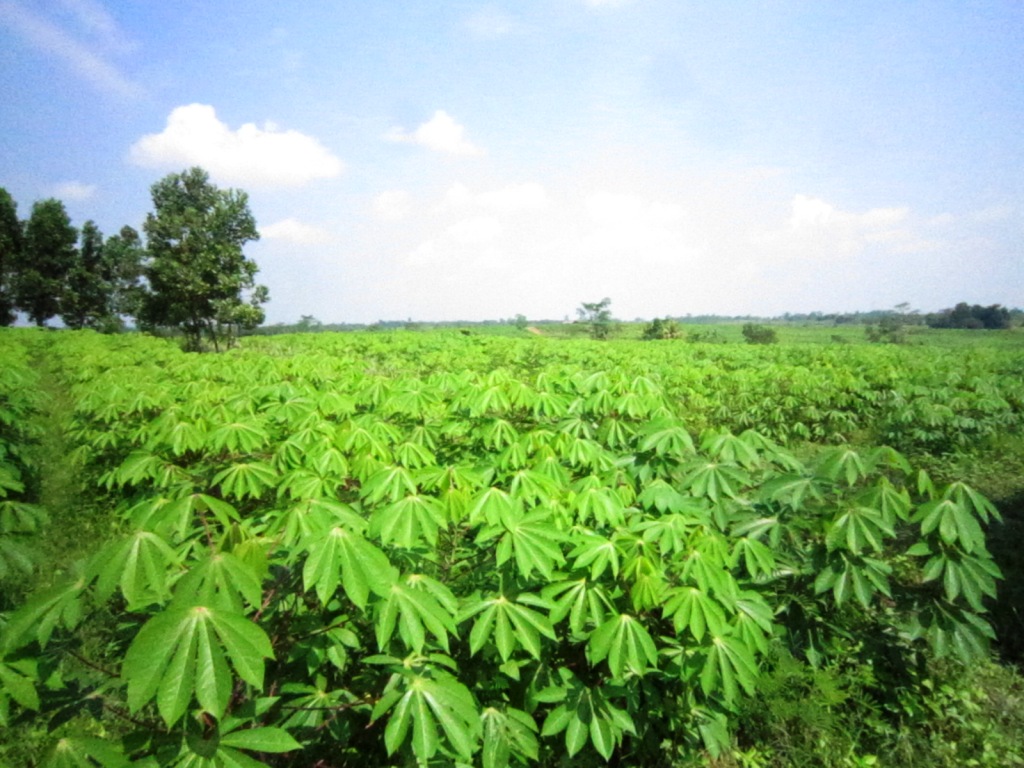After a day’s training on weed management in cassava farming systems, extension service providers have resolved to adopt and disseminate best bet weed management practices including appropriate spacing, tillage, use of improved varieties, and the use of safe and environmentally friendly herbicides.
The training, which was organized by the IITA-managed Cassava Weed Management Project in collaboration with the Building an Economically Sustainable Integrated Seed System for Cassava (BASICS) and Catholic Relief Services, presented the change agents new information on integrated weed management in cassava farming systems.
The 35 change agents drawn from different local government areas of Benue state resolved to:
• Tell farmers the importance of land measurement for cassava farming.
• Tell farmers not to wash used containers and other herbicide equipment near sources of water.
• Advice farmers on appropriate use of pre-emergence and post-emergence herbicides.
• Mobilize village seed entrepreneurs (VSEs) and farmer groups for a step-down training on weed management.
• Advice farmers on calibration and proper mixing of herbicides.
• Inform farmers the importance of wearing personal protective equipment.
•Advice farmers on the use of appropriate dosage in herbicide application and that an overdose of herbicides is harmful and not beneficial because it can lead to environmental pollution, resistance by the weeds, and even economic loss.
The training, which was held in Makurdi, was part of efforts to extend the knowledge generated by the IITA-CWMP to farmers especially beneficiaries of the BASICS project, and address the challenge of weeds in cassava farming systems in Nigeria.
The Project Director of BASICS, Hemant Nitturkar, said the collaboration between BASICS and IITA-CWMP is aimed at harnessing the expertise from weed management and cassava seeds system with the overall aim of increasing the yield of cassava.
The training, facilitated by Godwin Atser, Communication and Knowledge Exchange Expert, covered areas such as Land Preparation and Best Agronomic Practices, Types of Weeds, Types of Herbicides, Herbicides Application and Calibration, and Safe Use of Herbicides. There was also a practical session where participants were exposed to tips on application and spraying.
Alfred Dixon, Project Leader, IITA-CWMP, welcomed the inter-project collaboration, stressing that it was a step in the right direction.
“No one project can solve the problems of cassava. We need to work together and empower the farmers on all fronts,” Dr Dixon said.
“I commend IITA-CWMP, BASICS, and CRS for organizing this training of trainers,” he added.
Eunice Alice, an extension service provider with the Justice Development and Peace Commission (JDPC) in Oturkpo, said the training was relevant.
“Before, I had used bare hands in mixing herbicides and even ate on the field but today I discovered that was very bad,” she said.
Another change agent, Emmanuel Okwor who works with the Benue State Agricultural Development Authority (BNARDA) said: “I used to think taking milk was an antidote to herbicide ingestion but today I have come to realize that milk does not help reduce the effect of herbicides on human health.”
Iangba Oliver, a change agent with JDPC, said: “I have come to know the various cassava spacing for targeting roots or stems.”
Earlier Emmanuel Azaino, Program Manager for CRS and convener of the training, urged participants to use the training for the benefit of farmers in their domain.
He expressed optimism that the training would go a long way in addressing the constraints in weed management and help cassava seeds (stems) producers to maximize the gains from their investment in seed production.







